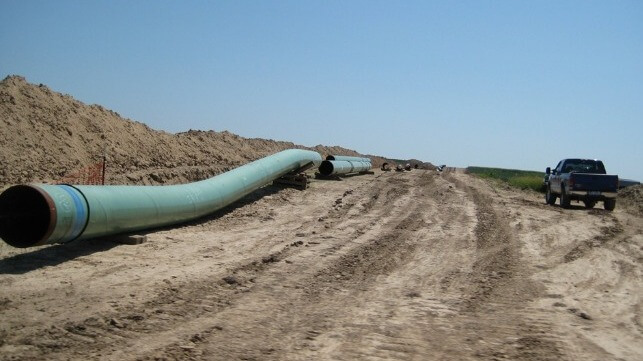Report: Trump Administration Considers Rebooting Keystone XL Pipeline

Canadian Prime Minister Mark Carney and U.S. President Donald Trump are in talks to revive the long-dormant Keystone XL pipeline proposal as part of a comprehensive trade deal, according to CBC and BBC. The pipeline's permit was canceled in 2021, and a reboot would give Canada's landlocked tar sands producers a new route to the U.S. Gulf Coast - and the sea.
Export logistics for Albertan oil are a point of tension in Canadian politics, and the TransCanada (TC Energy) Keystone XL is one of several proposals to address it. If completed, Keystone XL would increase the pipeline capacity connecting Alberta's bitumen fields with refineries and marine export terminals on the U.S. Gulf Coast. In its time, it was a top policy priority for Alberta's government, which provided $1.1 billion in direct funding and $4.2 billion in loan guarantees to support the pipeline's construction.
However, it was fiercely opposed by environmentalists and native tribes in the United States, who expressed concern about the carbon intensity of the tar sands production process and the potential for a pipeline spill on U.S. soil. Work carried on in fits and starts for more than a decade amidst protests, regulatory actions and lawsuits. In 2015, President Barack Obama ordered a halt to the pipeline's development; President Donald Trump reversed Obama's decision in 2017 and issued a federal permit; and President Joe Biden revoked that permit upon taking office in 2021. A few months later, TransCanada (renamed TC Energy) abandoned the project altogether, leaving behind about eight percent of the completed line.
In 2018, as an alternative to the stalled Keystone, the Canadian government bought and completed the Trans Mountain Expansion (TMX) pipeline from Alberta to Vancouver, B.C., with first oil pumped through in 2024. While TMX is a major addition to Canadian export capacity, the loading terminal is limited to Aframax tankers because of draft restrictions in the harbor, raising cost. Another alternative route backed by the government of Alberta would add a pipeline to the deepwater port of Prince Rupert, B.C. - but the line is opposed by British Columbia. Even if it were built, the Prince Rupert terminal would need exemption from a longtime ban on oil tanker navigation in the northern Inside Passage.
Keystone XL has none of those limitations, and would give Albertan producers ready access to existing U.S. Gulf Coast loading terminals and connections to global markets. Following initial talks between Trump and Carney, discussions on the possibility of a reboot for construction are under way at the staff level but are still preliminary, sources told BBC.

that matters most
Get the latest maritime news delivered to your inbox daily.
Any construction would depend upon the interest of the pipeline's inheritor, South Bow, an independent firm spun off from TC Energy last year. A spokesperson for the firm told BBC that it was supportive of the talks, adding that it would "continue to explore opportunities that leverage our existing corridor with our customers."
Pipes for the Keystone pipeline network, 2009 (File image courtesy Shannonpatrick17 / CC BY SA 3.0)
